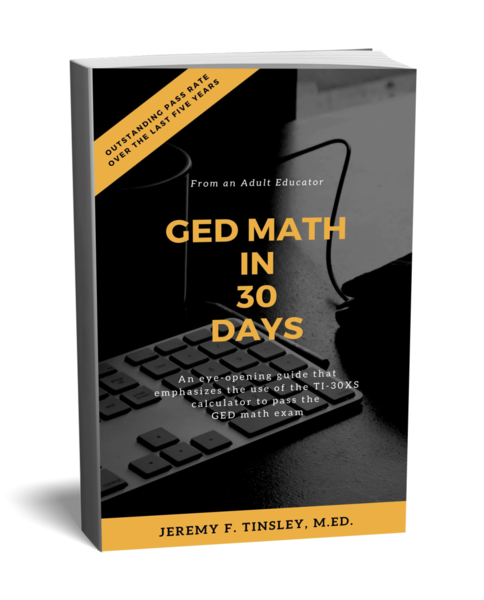Ten Tips for GED Study and Preparation
Ten Tips for GED Study and Preparation
1. Familiarize Yourself with the Test
The General Educational Development (GED) test evaluates your skills in mathematics. Created and administered by the American Council on Education (ACE), there are various ways to prepare for this high school equivalency exam. Be sure your study plan addresses every subject in the exam. Know the concepts on the exam.
2. Make a Scedule
Whether you choose an in-person GED preparation classes or choose to study at-home, you must make a plan to study mathematics at least 1-2 hours each day. Small steps for big gains.
In-person classes allow you to obtain one-on-one assistance in areas you need work on and teach you how to set up a regular study schedule leading up to your GED exam. You can find GED classes in your local area on your state or jurisdiction’s department of education website. Classes are generally at adult learning centers or community colleges.
Independent study can be a great option for some students; Most successful independent learners have the following characteristics:
- Curious (Do you ask why?)
- Self-motivated (Do you set goals and accomplish them?)
- Self-examination (Do you evaluate your choices and learn from them?)
- Accountable (Are you responsible and do you complete tasks?)
- Critical Thinker (Do you examine all possibilities and come up with multiple solutions?
- Comprehension (Do you have the ability to comprehend, visualize or understand new concepts with practice?)
- Persistent – (Do you give up easily or do you strive to get things done? Do you ask yourself questions after failure and diagnose your mistakes?)
- Disciplined – (Can you stick to a schedule?)
Independent learners take responsibility for their learning without getting down on themselves when they stumble or make a mistake. Effective independent learners build their self-esteem and confidence when they have the aforementioned characteristics. It all starts with a mentality to succeed!
3. Know the Calculator
The TI-30XS calculator will save you time and improve your accuracy and many of the questions on the GED.
4. Practice, Practice and Practice
You may prefer to study through books or other resources. There are many resources one can use to prepare for the GED Math exam. Please see our FREE RESOURCES for the ones we recommend.
5. Take a Practice Test
Practice tests can show you what types of questions are on the GED tests and help identify areas where you need more study. The GED.com offers practice tests and guides.
6. Use Multiple Methods of Study
You may consider combining GED study books with online resources and in-person classes. GED Math in 30 Days is a supplement to your regular studies and will greatly improve your probability of passing the GED Math exam.
7. Know What Tools You’ll Need for the Test
Your test center will provide you with an embedded calculator for use on one part of the mathematics exam. However, you may choose to bring your own TI-30XS Multiview Scientific Calculator to use on the GED exam. Test-takers should also familiarize themselves with the GED Math Formulas & Symbols Reference sheet. The guide will be provided at the testing center, but can also be found on the GED Testing Service website. Being familiar with the many formulas used on the GED Math exam is essential in passing the exam.
8. Apply for Special Accommodations (If Needed)
Individuals in need of special accommodations may make those requests when they register for the exam at the GED website at GED.com.
9. Contact Your Local Test Center
There are more than 3,000 test centers in the U.S. and overseas. Contact a test center in your area to get your questions answered. Call them to determine the testing times; the fee required, if any; and the directions to the test center. You may find your local test center on GED.com with the test-center locator.
10. Retake the GED Test if Necessary
To pass the GED exam, individuals need a minimum score of 145 on the Math tests. However, if you don’t achieve a passing score, you can retake any individual section. Most states allow you to retake the exam twice without waiting. Typically, after the third attempt, a 60-day waiting period is applied.












Latest Comments
John Williams
Why is the GED Math exam so difficult? I fail...
Mark
Thanks for your blog, nice to read. Do not st...
Bridgett McAdams
Hi, Just started the program about five days...
Misty Slater
Thanks for your videos and your help. These a...
Rotasha Bellamy
I been watching your videos for only 2 weeks,...